Better Employee ID Badges and Cards: Security and More
What is an employee ID badge, and why does it matter?
Employee ID badges are more than just pieces of plastic with a name and photo. Whether in manufacturing, retail, or corporate offices, ID badges and ID cards can benefit your business in a variety of ways. Beyond just instant identification, they can serve as powerful tools for security management, time tracking, enhancing employee morale, and improving customer relations. The use of employee ID cards and badges fosters a sense of security, trust, and professionalism within the workplace, making them a valuable asset for any company.
In this article, we’ll explore the critical role an employee identification system can serve within any organization. We’ll look at their benefits and how best to implement them in order to create a safer, more cohesive workplace. We’ll also share how you can use Avery products and tools to simplify the process of creating and printing your own custom employee ID badges onsite.
The purpose of staff ID badges in the workplace
As mentioned, employee ID badges can serve a number of security functions beyond basic identification. They represent a company’s values and professionalism while helping operations run smoothly. Let’s explore some of the advantages of these ID badges and ID cards. We’ll learn why they are key to creating a safe and cohesive work environment.
Enhanced security
First and foremost, employee identification is essential to ensuring security in your workplace. They provide instant identification of all individuals entering the facility and make visitors and non-employees easier to identify.
Employee IDs can be used to restrict access to certain areas, machines, and equipment. This added security is great for protecting confidential or sensitive information stored on your property. It can help prevent security breaches. Monitoring everyone who enters the building can also be helpful during an emergency, like a fire or earthquake. It makes it easier to account for anyone who is missing.
Better company morale
Having a safe and secure environment helps staff feel more comfortable, which improves company morale. In addition, ID cards provide a sense of belonging and identity within a company. Similar to wearing a jersey with a team logo, wearing an ID with the company logo helps employees feel more connected to each other. It’s like they’re playing for the same team.
Employee photo IDs also make it easier to put a face to a name. Being able to classify fellow workers based on their department or managerial level can help initiate social interactions and simplify communications.
Additionally, having names and positions displayed for all to see makes it easier for employees to learn about each other and their roles in the company. It might also give them a boost of confidence and motivate them to work harder.
An extra level of employee accountability
Another advantage of implementing employee ID cards and badges in your facility is an added level of accountability. The ability to keep tabs on where workers are and what equipment they use encourages responsibility. It also helps counteract theft within the company.
Being able to track time and attendance can also prevent workers from slacking off, being tardy, or leaving early. The transparency and culpability keep everyone accountable for their actions throughout the day.
Improved customer relations
Employee ID cards and badges can also boost customer and client relations. Photo IDs are a quick way for customers and clients to be able to verify that the person they’re talking to has the knowledge and power to help them with what they need.
The ease of interaction provides a better customer experience. It helps to quickly and easily establish a relationship between the customer and employee. The familiarity also encourages your customers and clients to trust a new or different employee faster.
An excellent branding opportunity
An additional benefit of implementing employee identification is branding. Employees wearing company ID badges can provide great opportunities for promoting your logo and brand outside the office. Seeing an employee wearing a company badge could spark interest and curiosity, which can hopefully lead to an inquiry.
Likewise, badges can even be used to promote your company at meetings, conventions, and other industry-related events. Having knowledgeable and standout workers wear your company logo will help establish your business as a legitimate player in your industry.
A show of professionalism
Lastly, employee ID cards are a great way to make your company look good. When workers have their names, positions, and the company logo on their badges, it provides an extra layer of professionalism. It helps to show that you are serious about your business and have the experience and expertise to back it up.
This show of professionalism and confidence can sway prospective clients and customers to do business with your company. Plus, implementing the regular use of IDs is a good way to encourage professionalism within your workplace.

Types of employee ID badges and their features
No matter the industry, it’s critical to protect employees, safeguard company assets, and prevent theft. A good system to do that is through employee ID cards and badges. But what type is best for your workplace?
There are a number of options when it comes to employee identification. The right one for you will depend on what you need from it. To help you determine what you need, let’s take a look at what’s available:
Photo IDs
The most standard form of staff identification is a photo ID. Along with the company name and/or logo, employee IDs include the person’s name, title, and photo. These IDs work as basic visual security to determine who is an employee and who is not. They are also a quick way to identify who the employee is and their position in the company.
Scannable IDs
A scannable ID combines the standard photo ID with a barcode or QR code. When used with a card reader, these IDs can keep track of when a worker scans in and out. Along with the visual safety aspect, scannable IDs are a good way to track an employee’s time and attendance. This will ensure they are paid properly for time worked.
Proximity cards and badges
A more advanced type of ID, proximity cards feature magnetic strips, RFID tags, or smart chips that work with a proximity system. When worn, they allow access to certain areas of a worksite or to special equipment. By restricting people with lower security clearances, they eliminate the need for hiring security personnel for important areas. This can save a company money in the long run.
Another choice to make when determining the best type of employee identification for your workplace is whether to use cards or badges, but what is the difference between an ID card and an ID badge? While both are portable and perform the same functions equally, the only difference is that the badge is wearable while the card is not. Badges are basically cards with an added attachment, like a clip, lanyard, or magnet, that allows them to be worn and displayed easily.
Best practices for creating employee ID badges
Now that we’ve gone over the various types and advantages of using worker ID cards and badges for your facility, let’s get into how to create your own staff IDs.
A good place to start is with the card material. IDs should be durable enough to hold up to daily use, so regular paper won’t cut it unless you use laminated sheets or insert them in sturdy badge holders. However, industrial workplaces and businesses that work in heavy-duty environments should use a more substantial and resilient material.
The size of the ID should be big enough to clearly display all the information needed, but small enough to not be a hindrance. The most common ID size is the same as a credit card: 3.375″ x 2.125″. This size gives the added convenience of fitting in a wallet or purse.
When it comes to the design of your company ID cards, include these key elements for the most effective results:
- Company name or logo
- Employee’s photo
- Employee’s name and title
- Barcodes, QR codes, or ID numbers, if needed
After cards are designed and printed, make sure workers are trained on how to correctly use and understand these ID cards and badges. It’s also good to conduct regular reviews and updates to ensure accuracy and security.
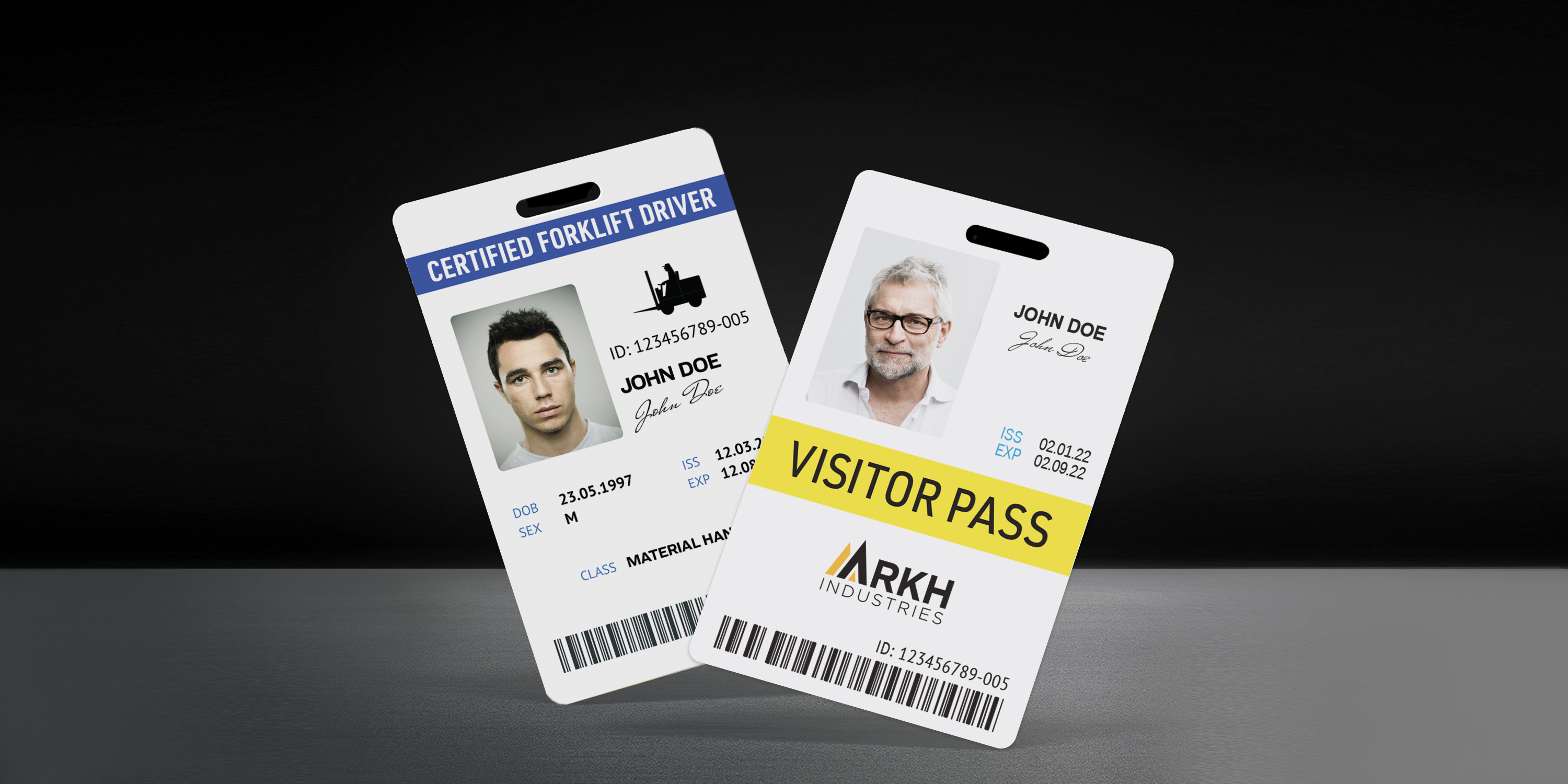
Make things easy with Avery ID cards and badges
If you’re looking to streamline the process of creating IDs for your workplace, we have the tools to help. Avery durable name tags, badges, and ID cards are engineered to work in heavy-duty environments and hold up to frequent use.
Our line of printable plastic IDs is ideal for use in manufacturing plants and other industrial sites, as well as commercial and public facilities. Avery ID cards 61610, Avery wide ID badges 61611, and Avery tall ID badges 61612 are made from 11-mil plastic and designed to be waterproof and resistant to chemicals, abrasions, tearing, and UV. Furthermore, our badges feature a durable clip hole for lanyards or bulldog clips that can resist up to 35 lbs. of pull force.
You can also use Avery Design & Print Online, our free design software, to quickly and easily design your company IDs. Choose from our predesigned templates for ID cards and badges, and customize the designs with your own text, colors, logos, and images as needed. You can also create your own designs from scratch. We even make it easy to add unique barcodes or QR codes to each employee ID with our barcode generator.
Our blank ID cards and badges are also printable on both sides, allowing you to fit more information if needed. Best of all, you can print them onsite using most standard desktop laser printers. This saves you the time, hassle, and money of having them printed by a third party every time you hire a new worker. Plus, our cards and badges are handwritable with ballpoint pens or permanent markers, so employees can add their signatures for added security.
Different uses of employee ID cards and badges
Along with standard employee identification, ID cards and badges can also be used to provide other functions for your workplace. Here are just a few ways you can utilize ID cards and ID badges in your facility. Also included are free Avery templates, which you can easily customize and print onsite whenever you need them.
Visitor passes permit visitors to enter your premises. It tells you who they are, where they’ve gone, and how long they’ve been there. These IDs can also grant temporary access to certain areas or equipment, if needed.
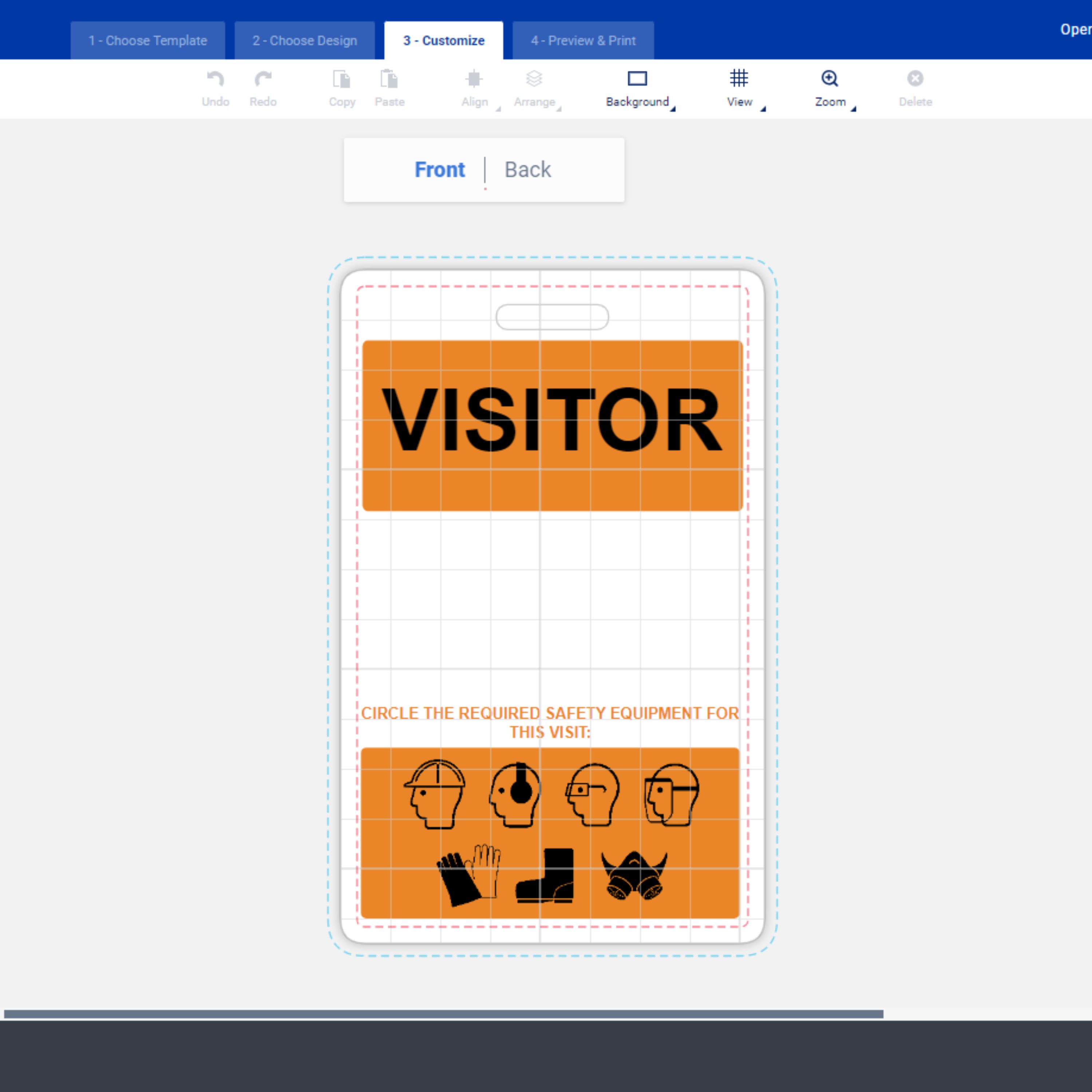
Customize this design for visitor passes for free. Then, print it on Avery 61612 Tall ID Badges using a color laser printer.
Safety certification cards recognize that the employee has passed a safety training course, such as for operating specialized machines or equipment, administering CPR, or performing lockout tagout procedures.
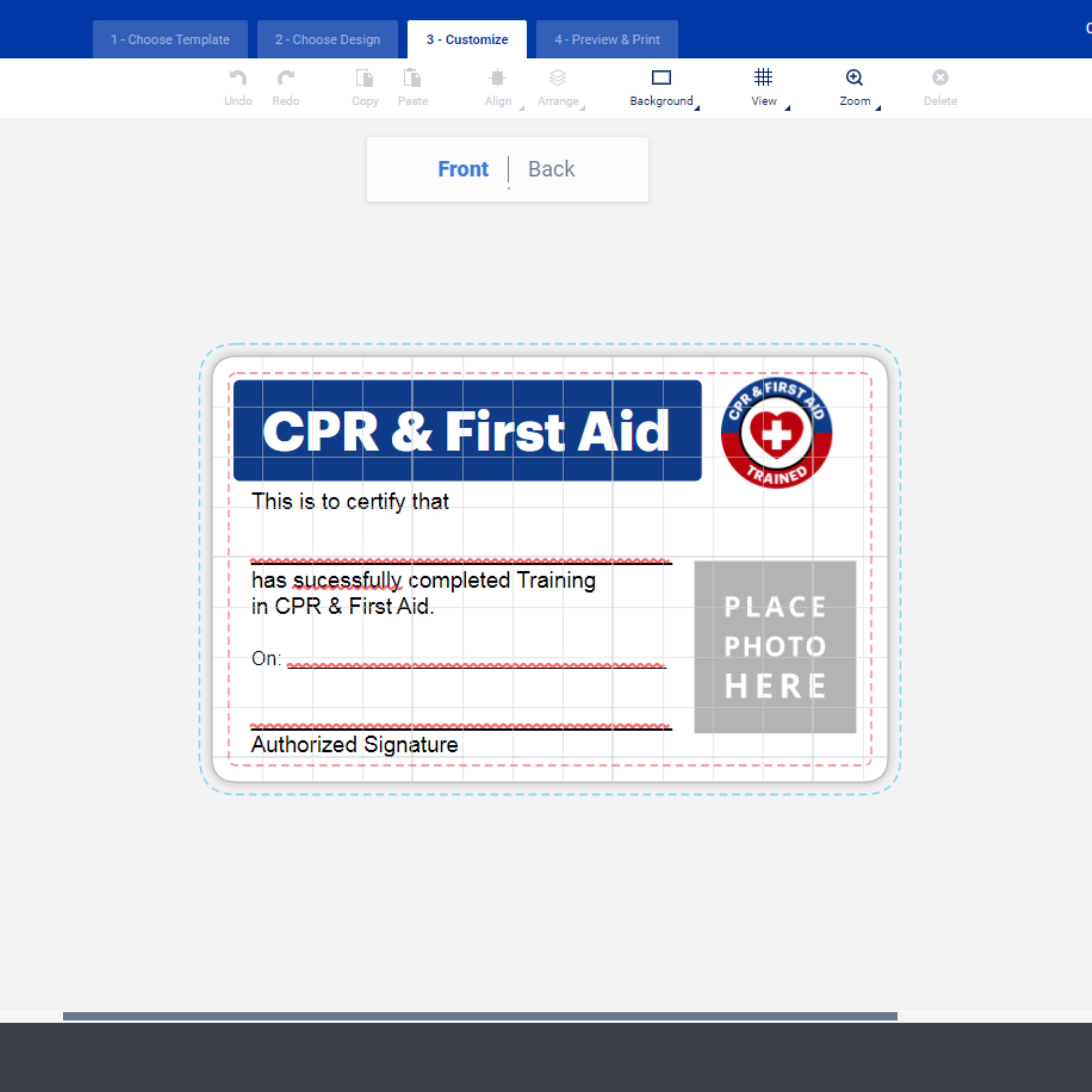
Customize this design for CPR certification cards for free. Then, print it on Avery 61610 ID Cards using a color laser printer.
Forklift certification badges confirm that the employee has been trained and is authorized to operate a powered industrial truck, such as a forklift. OSHA requires employers to ensure that powered truck operators are trained and certified.
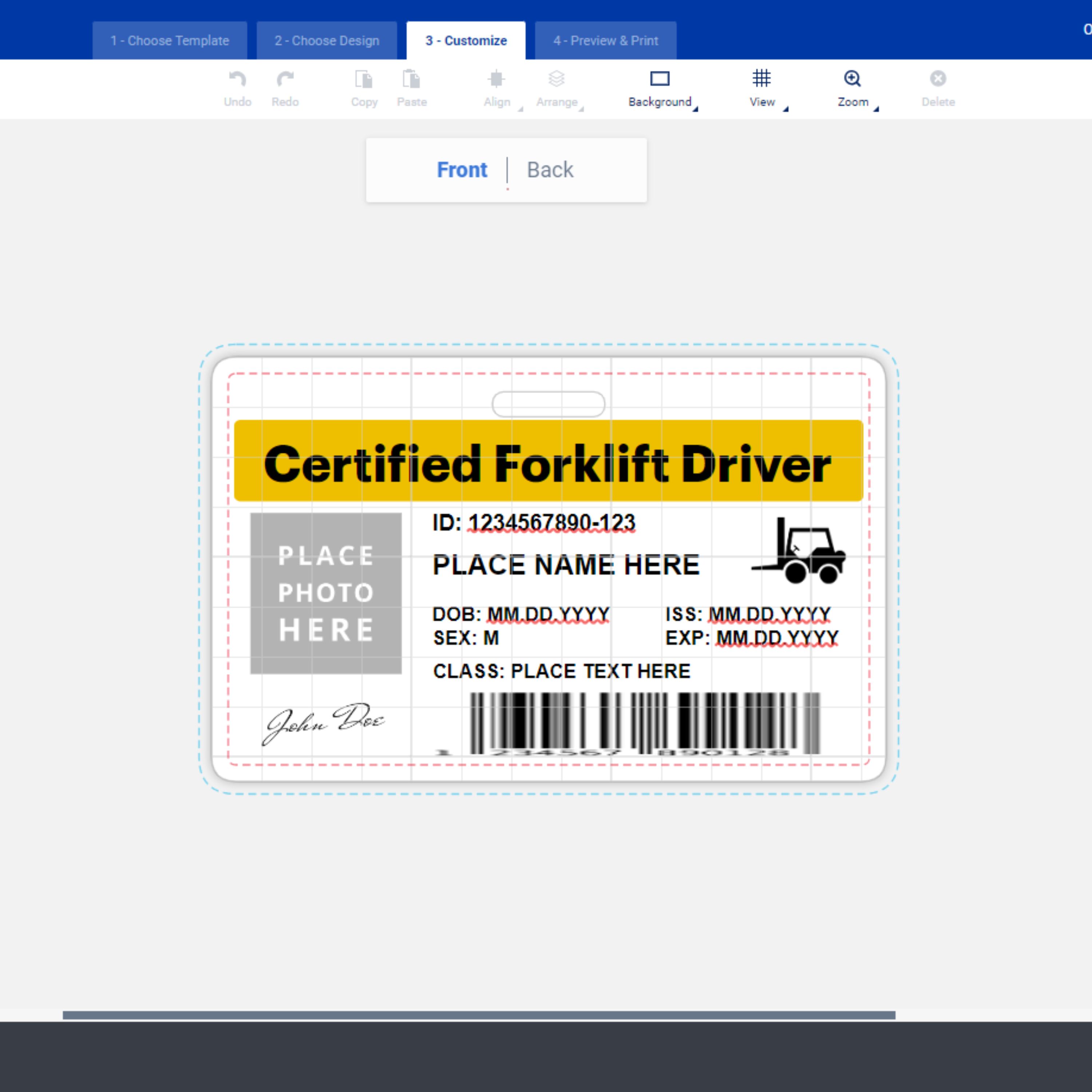
Customize this design for Forklift Certification Badges for free. Then, print it on Avery 61611 ID Badges using a color laser printer.
Membership cards and loyalty cards allow you to identify customers or clients who are entitled to special privileges. These cards can also be used as a good marketing tool for your company and can help build a better relationship with your customers.
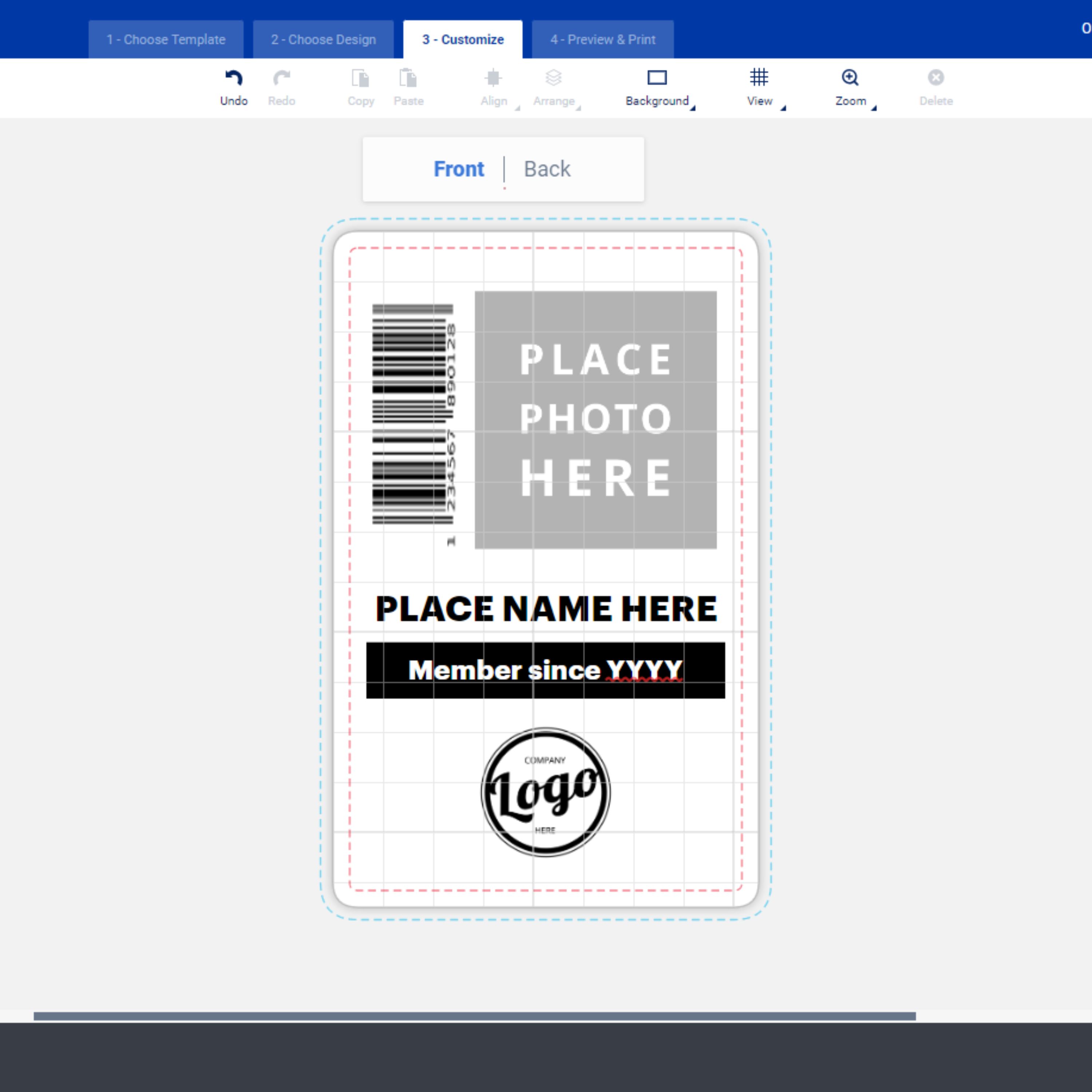
Customize this design for membership cards for free. Then, print it on Avery 61610 ID Cards using a color laser printer.
Event badges are great promotional tools when hosting a special business event like a meeting, tradeshow, or conference. You can use event badges to showcase your branding while providing key information about the attendee, including their name, company, and job title.
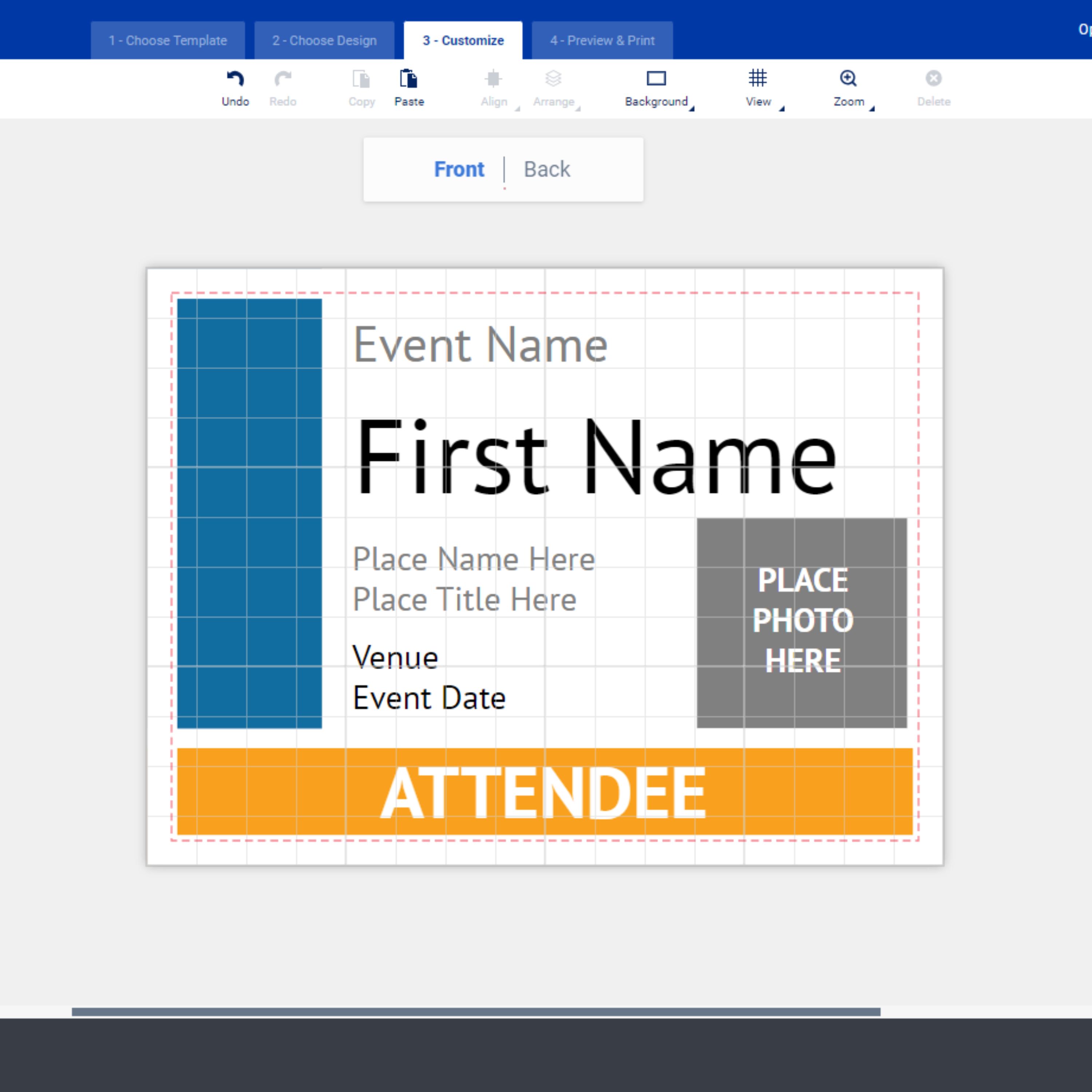
Customize this design for attendee event badges for free. Then, print it on Avery 74459 Name Badges using a laser or inkjet printer.
Volunteer IDs identify volunteers working for an organization or event and usually include the person’s name and reason for volunteering. These IDs make it quick and easy for people to determine who they can go to for help.
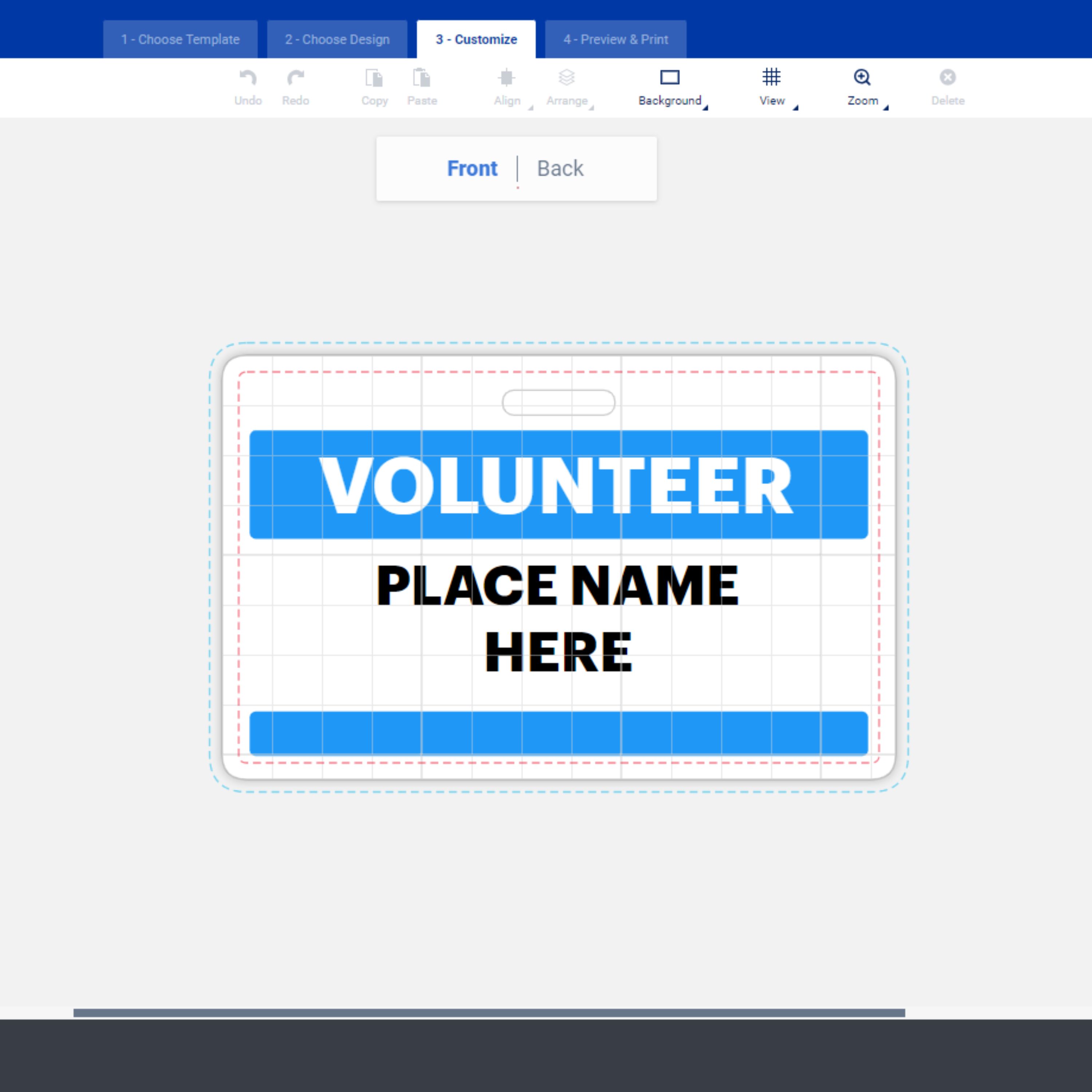
Customize this design for volunteer ID badges for free. Then, print it on Avery 61611 ID Badges using a color laser printer.
Implement employee identification in your facility today
There’s no denying the benefits of utilizing ID cards or badges in the workplace. Creating an efficient and effective ID system for your facility not only adds to your security but also helps to improve company morale and customer experiences.
No matter what type of IDs you use or what applications you use them for, Avery Industrial provides the products and tools to make the process quick and easy. From our durable ID cards and ID badges to our free design tool and templates, we offer everything you need to print your own company IDs onsite and on demand.
Please note, the contents of this article and related articles on avery.com/industrial are for informational purposes only, are general in nature, and are not intended to and should not be relied upon or construed as a legal opinion or legal advice regarding any specific issue or factual circumstance.